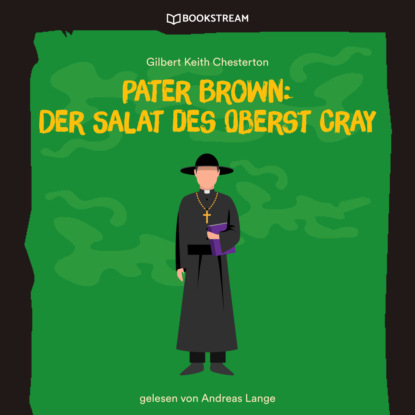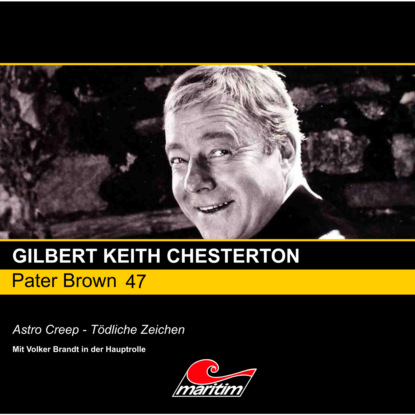 Полная версия
Полная версияПолная версия:
Гилберт Кит Честертон George Bernard Shaw
- + Увеличить шрифт
- - Уменьшить шрифт

G. K. Chesterton
George Bernard Shaw
Introduction to the First Edition
Most people either say that they agree with Bernard Shaw or that they do not understand him. I am the only person who understands him, and I do not agree with him.
G. K. C.The Problem of a Preface
A peculiar difficulty arrests the writer of this rough study at the very start. Many people know Mr. Bernard Shaw chiefly as a man who would write a very long preface even to a very short play. And there is truth in the idea; he is indeed a very prefatory sort of person. He always gives the explanation before the incident; but so, for the matter of that, does the Gospel of St. John. For Bernard Shaw, as for the mystics, Christian and heathen (and Shaw is best described as a heathen mystic), the philosophy of facts is anterior to the facts themselves. In due time we come to the fact, the incarnation; but in the beginning was the Word.
This produces upon many minds an impression of needless preparation and a kind of bustling prolixity. But the truth is that the very rapidity of such a man's mind makes him seem slow in getting to the point. It is positively because he is quick-witted that he is long-winded. A quick eye for ideas may actually make a writer slow in reaching his goal, just as a quick eye for landscapes might make a motorist slow in reaching Brighton. An original man has to pause at every allusion or simile to re-explain historical parallels, to re-shape distorted words. Any ordinary leader-writer (let us say) might write swiftly and smoothly something like this: "The element of religion in the Puritan rebellion, if hostile to art, yet saved the movement from some of the evils in which the French Revolution involved morality." Now a man like Mr. Shaw, who has his own views on everything, would be forced to make the sentence long and broken instead of swift and smooth. He would say something like: "The element of religion, as I explain religion, in the Puritan rebellion (which you wholly misunderstand) if hostile to art – that is what I mean by art – may have saved it from some evils (remember my definition of evil) in which the French Revolution – of which I have my own opinion – involved morality, which I will define for you in a minute." That is the worst of being a really universal sceptic and philosopher; it is such slow work. The very forest of the man's thoughts chokes up his thoroughfare. A man must be orthodox upon most things, or he will never even have time to preach his own heresy.
Now the same difficulty which affects the work of Bernard Shaw affects also any book about him. There is an unavoidable artistic necessity to put the preface before the play; that is, there is a necessity to say something of what Bernard Shaw's experience means before one even says what it was. We have to mention what he did when we have already explained why he did it. Viewed superficially, his life consists of fairly conventional incidents, and might easily fall under fairly conventional phrases. It might be the life of any Dublin clerk or Manchester Socialist or London author. If I touch on the man's life before his work, it will seem trivial; yet taken with his work it is most important. In short, one could scarcely know what Shaw's doings meant unless one knew what he meant by them. This difficulty in mere order and construction has puzzled me very much. I am going to overcome it, clumsily perhaps, but in the way which affects me as most sincere. Before I write even a slight suggestion of his relation to the stage, I am going to write of three soils or atmospheres out of which that relation grew. In other words, before I write of Shaw I will write of the three great influences upon Shaw. They were all three there before he was born, yet each one of them is himself and a very vivid portrait of him from one point of view. I have called these three traditions: "The Irishman," "The Puritan," and "The Progressive." I do not see how this prefatory theorising is to be avoided; for if I simply said, for instance, that Bernard Shaw was an Irishman, the impression produced on the reader might be remote from my thought and, what is more important, from Shaw's. People might think, for instance, that I meant that he was "irresponsible." That would throw out the whole plan of these pages, for if there is one thing that Shaw is not, it is irresponsible. The responsibility in him rings like steel. Or, again, if I simply called him a Puritan, it might mean something about nude statues or "prudes on the prowl." Or if I called him a Progressive, it might be supposed to mean that he votes for Progressives at the County Council election, which I very much doubt. I have no other course but this: of briefly explaining such matters as Shaw himself might explain them. Some fastidious persons may object to my thus putting the moral in front of the fable. Some may imagine in their innocence that they already understand the word Puritan or the yet more mysterious word Irishman. The only person, indeed, of whose approval I feel fairly certain is Mr. Bernard Shaw himself, the man of many introductions.
The Irishman
The English public has commonly professed, with a kind of pride, that it cannot understand Mr. Bernard Shaw. There are many reasons for it which ought to be adequately considered in such a book as this. But the first and most obvious reason is the mere statement that George Bernard Shaw was born in Dublin in 1856. At least one reason why Englishmen cannot understand Mr. Shaw is that Englishmen have never taken the trouble to understand Irishmen. They will sometimes be generous to Ireland; but never just to Ireland. They will speak to Ireland; they will speak for Ireland; but they will not hear Ireland speak. All the real amiability which most Englishmen undoubtedly feel towards Irishmen is lavished upon a class of Irishmen which unfortunately does not exist. The Irishman of the English farce, with his brogue, his buoyancy, and his tender-hearted irresponsibility, is a man who ought to have been thoroughly pampered with praise and sympathy, if he had only existed to receive them. Unfortunately, all the time that we were creating a comic Irishman in fiction, we were creating a tragic Irishman in fact. Never perhaps has there been a situation of such excruciating cross-purposes even in the three-act farce. The more we saw in the Irishman a sort of warm and weak fidelity, the more he regarded us with a sort of icy anger. The more the oppressor looked down with an amiable pity, the more did the oppressed look down with a somewhat unamiable contempt. But, indeed, it is needless to say that such comic cross-purposes could be put into a play; they have been put into a play. They have been put into what is perhaps the most real of Mr. Bernard Shaw's plays, John Bull's Other Island.
It is somewhat absurd to imagine that any one who has not read a play by Mr. Shaw will be reading a book about him. But if it comes to that it is (as I clearly perceive) absurd to be writing a book about Mr. Bernard Shaw at all. It is indefensibly foolish to attempt to explain a man whose whole object through life has been to explain himself. But even in nonsense there is a need for logic and consistency; therefore let us proceed on the assumption that when I say that all Mr. Shaw's blood and origin may be found in John Bull's Other Island, some reader may answer that he does not know the play. Besides, it is more important to put the reader right about England and Ireland even than to put him right about Shaw. If he reminds me that this is a book about Shaw, I can only assure him that I will reasonably, and at proper intervals, remember the fact.
Mr. Shaw himself said once, "I am a typical Irishman; my family came from Yorkshire." Scarcely anyone but a typical Irishman could have made the remark. It is in fact a bull, a conscious bull. A bull is only a paradox which people are too stupid to understand. It is the rapid summary of something which is at once so true and so complex that the speaker who has the swift intelligence to perceive it, has not the slow patience to explain it. Mystical dogmas are much of this kind. Dogmas are often spoken of as if they were signs of the slowness or endurance of the human mind. As a matter of fact, they are marks of mental promptitude and lucid impatience. A man will put his meaning mystically because he cannot waste time in putting it rationally. Dogmas are not dark and mysterious; rather a dogma is like a flash of lightning – an instantaneous lucidity that opens across a whole landscape. Of the same nature are Irish bulls; they are summaries which are too true to be consistent. The Irish make Irish bulls for the same reason that they accept Papal bulls. It is because it is better to speak wisdom foolishly, like the Saints, rather than to speak folly wisely, like the Dons.
This is the truth about mystical dogmas and the truth about Irish bulls; it is also the truth about the paradoxes of Bernard Shaw. Each of them is an argument impatiently shortened into an epigram. Each of them represents a truth hammered and hardened, with an almost disdainful violence until it is compressed into a small space, until it is made brief and almost incomprehensible. The case of that curt remark about Ireland and Yorkshire is a very typical one. If Mr. Shaw had really attempted to set out all the sensible stages of his joke, the sentence would have run something like this: "That I am an Irishman is a fact of psychology which I can trace in many of the things that come out of me, my fastidiousness, my frigid fierceness and my distrust of mere pleasure. But the thing must be tested by what comes from me; do not try on me the dodge of asking where I came from, how many batches of three hundred and sixty-five days my family was in Ireland. Do not play any games on me about whether I am a Celt, a word that is dim to the anthropologist and utterly unmeaning to anybody else. Do not start any drivelling discussions about whether the word Shaw is German or Scandinavian or Iberian or Basque. You know you are human; I know I am Irish. I know I belong to a certain type and temper of society; and I know that all sorts of people of all sorts of blood live in that society and by that society; and are therefore Irish. You can take your books of anthropology to hell or to Oxford." Thus gently, elaborately and at length, Mr. Shaw would have explained his meaning, if he had thought it worth his while. As he did not he merely flung the symbolic, but very complete sentence, "I am a typical Irishman; my family came from Yorkshire."
What then is the colour of this Irish society of which Bernard Shaw, with all his individual oddity, is yet an essential type? One generalisation, I think, may at least be made. Ireland has in it a quality which caused it (in the most ascetic age of Christianity) to be called the "Land of Saints"; and which still might give it a claim to be called the Land of Virgins. An Irish Catholic priest once said to me, "There is in our people a fear of the passions which is older even than Christianity." Everyone who has read Shaw's play upon Ireland will remember the thing in the horror of the Irish girl at being kissed in the public streets. But anyone who knows Shaw's work will recognize it in Shaw himself. There exists by accident an early and beardless portrait of him which really suggests in the severity and purity of its lines some of the early ascetic pictures of the beardless Christ. However he may shout profanities or seek to shatter the shrines, there is always something about him which suggests that in a sweeter and more solid civilisation he would have been a great saint. He would have been a saint of a sternly ascetic, perhaps of a sternly negative type. But he has this strange note of the saint in him: that he is literally unworldly. Worldliness has no human magic for him; he is not bewitched by rank nor drawn on by conviviality at all. He could not understand the intellectual surrender of the snob. He is perhaps a defective character; but he is not a mixed one. All the virtues he has are heroic virtues. Shaw is like the Venus of Milo; all that there is of him is admirable.
But in any case this Irish innocence is peculiar and fundamental in him; and strange as it may sound, I think that his innocence has a great deal to do with his suggestions of sexual revolution. Such a man is comparatively audacious in theory because he is comparatively clean in thought. Powerful men who have powerful passions use much of their strength in forging chains for themselves; they alone know how strong the chains need to be. But there are other souls who walk the woods like Diana, with a sort of wild chastity. I confess I think that this Irish purity a little disables a critic in dealing, as Mr. Shaw has dealt, with the roots and reality of the marriage law. He forgets that those fierce and elementary functions which drive the universe have an impetus which goes beyond itself and cannot always easily be recovered. So the healthiest men may often erect a law to watch them, just as the healthiest sleepers may want an alarum clock to wake them up. However this may be, Bernard Shaw certainly has all the virtues and all the powers that go with this original quality in Ireland. One of them is a sort of awful elegance; a dangerous and somewhat inhuman daintiness of taste which sometimes seems to shrink from matter itself, as though it were mud. Of the many sincere things Mr. Shaw has said he never said a more sincere one than when he stated he was a vegetarian, not because eating meat was bad morality, but because it was bad taste. It would be fanciful to say that Mr. Shaw is a vegetarian because he comes of a race of vegetarians, of peasants who are compelled to accept the simple life in the shape of potatoes. But I am sure that his fierce fastidiousness in such matters is one of the allotropic forms of the Irish purity; it is to the virtue of Father Matthew what a coal is to a diamond. It has, of course, the quality common to all special and unbalanced types of virtue, that you never know where it will stop. I can feel what Mr. Shaw probably means when he says that it is disgusting to feast off dead bodies, or to cut lumps off what was once a living thing. But I can never know at what moment he may not feel in the same way that it is disgusting to mutilate a pear-tree, or to root out of the earth those miserable mandrakes which cannot even groan. There is no natural limit to this rush and riotous gallop of refinement.
But it is not this physical and fantastic purity which I should chiefly count among the legacies of the old Irish morality. A much more important gift is that which all the saints declared to be the reward of chastity: a queer clearness of the intellect, like the hard clearness of a crystal. This certainly Mr. Shaw possesses; in such degree that at certain times the hardness seems rather clearer than the clearness. But so it does in all the most typical Irish characters and Irish attitudes of mind. This is probably why Irishmen succeed so much in such professions as require a certain crystalline realism, especially about results. Such professions are the soldier and the lawyer; these give ample opportunity for crimes but not much for mere illusions. If you have composed a bad opera you may persuade yourself that it is a good one; if you have carved a bad statue you can think yourself better than Michael Angelo. But if you have lost a battle you cannot believe you have won it; if your client is hanged you cannot pretend that you have got him off.
There must be some sense in every popular prejudice, even about foreigners. And the English people certainly have somehow got an impression and a tradition that the Irishman is genial, unreasonable, and sentimental. This legend of the tender, irresponsible Paddy has two roots; there are two elements in the Irish which made the mistake possible. First, the very logic of the Irishman makes him regard war or revolution as extra-logical, an ultima ratio which is beyond reason. When fighting a powerful enemy he no more worries whether all his charges are exact or all his attitudes dignified than a soldier worries whether a cannon-ball is shapely or a plan of campaign picturesque. He is aggressive; he attacks. He seems merely to be rowdy in Ireland when he is really carrying the war into Africa – or England. A Dublin tradesman printed his name and trade in archaic Erse on his cart. He knew that hardly anybody could read it; he did it to annoy. In his position I think he was quite right. When one is oppressed it is a mark of chivalry to hurt oneself in order to hurt the oppressor. But the English (never having had a real revolution since the Middle Ages) find it very hard to understand this steady passion for being a nuisance, and mistake it for mere whimsical impulsiveness and folly. When an Irish member holds up the whole business of the House of Commons by talking of his bleeding country for five or six hours, the simple English members suppose that he is a sentimentalist. The truth is that he is a scornful realist who alone remains unaffected by the sentimentalism of the House of Commons. The Irishman is neither poet enough nor snob enough to be swept away by those smooth social and historical tides and tendencies which carry Radicals and Labour members comfortably off their feet. He goes on asking for a thing because he wants it; and he tries really to hurt his enemies because they are his enemies. This is the first of the queer confusions which make the hard Irishman look soft. He seems to us wild and unreasonable because he is really much too reasonable to be anything but fierce when he is fighting.
In all this it will not be difficult to see the Irishman in Bernard Shaw. Though personally one of the kindest men in the world, he has often written really in order to hurt; not because he hated any particular men (he is hardly hot and animal enough for that), but because he really hated certain ideas even unto slaying. He provokes; he will not let people alone. One might even say that he bullies, only that this would be unfair, because he always wishes the other man to hit back. At least he always challenges, like a true Green Islander. An even stronger instance of this national trait can be found in another eminent Irishman, Oscar Wilde. His philosophy (which was vile) was a philosophy of ease, of acceptance, and luxurious illusion; yet, being Irish, he could not help putting it in pugnacious and propagandist epigrams. He preached his softness with hard decision; he praised pleasure in the words most calculated to give pain. This armed insolence, which was the noblest thing about him, was also the Irish thing; he challenged all comers. It is a good instance of how right popular tradition is even when it is most wrong, that the English have perceived and preserved this essential trait of Ireland in a proverbial phrase. It is true that the Irishman says, "Who will tread on the tail of my coat?"
But there is a second cause which creates the English fallacy that the Irish are weak and emotional. This again springs from the very fact that the Irish are lucid and logical. For being logical they strictly separate poetry from prose; and as in prose they are strictly prosaic, so in poetry they are purely poetical. In this, as in one or two other things, they resemble the French, who make their gardens beautiful because they are gardens, but their fields ugly because they are only fields. An Irishman may like romance, but he will say, to use a frequent Shavian phrase, that it is "only romance." A great part of the English energy in fiction arises from the very fact that their fiction half deceives them. If Rudyard Kipling, for instance, had written his short stories in France, they would have been praised as cool, clever little works of art, rather cruel, and very nervous and feminine; Kipling's short stories would have been appreciated like Maupassant's short stories. In England they were not appreciated but believed. They were taken seriously by a startled nation as a true picture of the empire and the universe. The English people made haste to abandon England in favour of Mr. Kipling and his imaginary colonies; they made haste to abandon Christianity in favour of Mr. Kipling's rather morbid version of Judaism. Such a moral boom of a book would be almost impossible in Ireland, because the Irish mind distinguishes between life and literature. Mr. Bernard Shaw himself summed this up as he sums up so many things in a compact sentence which he uttered in conversation with the present writer, "An Irishman has two eyes." He meant that with one eye an Irishman saw that a dream was inspiring, bewitching, or sublime, and with the other eye that after all it was a dream. Both the humour and the sentiment of an Englishman cause him to wink the other eye. Two other small examples will illustrate the English mistake. Take, for instance, that noble survival from a nobler age of politics – I mean Irish oratory. The English imagine that Irish politicians are so hot-headed and poetical that they have to pour out a torrent of burning words. The truth is that the Irish are so clear-headed and critical that they still regard rhetoric as a distinct art, as the ancients did. Thus a man makes a speech as a man plays a violin, not necessarily without feeling, but chiefly because he knows how to do it. Another instance of the same thing is that quality which is always called the Irish charm. The Irish are agreeable, not because they are particularly emotional, but because they are very highly civilised. Blarney is a ritual; as much of a ritual as kissing the Blarney Stone.
Lastly, there is one general truth about Ireland which may very well have influenced Bernard Shaw from the first; and almost certainly influenced him for good. Ireland is a country in which the political conflicts are at least genuine; they are about something. They are about patriotism, about religion, or about money: the three great realities. In other words, they are concerned with what commonwealth a man lives in or with what universe a man lives in or with how he is to manage to live in either. But they are not concerned with which of two wealthy cousins in the same governing class shall be allowed to bring in the same Parish Councils Bill; there is no party system in Ireland. The party system in England is an enormous and most efficient machine for preventing political conflicts. The party system is arranged on the same principle as a three-legged race: the principle that union is not always strength and is never activity. Nobody asks for what he really wants. But in Ireland the loyalist is just as ready to throw over the King as the Fenian to throw over Mr. Gladstone; each will throw over anything except the thing that he wants. Hence it happens that even the follies or the frauds of Irish politics are more genuine as symptoms and more honourable as symbols than the lumbering hypocrisies of the prosperous Parliamentarian. The very lies of Dublin and Belfast are truer than the truisms of Westminster. They have an object; they refer to a state of things. There was more honesty, in the sense of actuality, about Piggott's letters than about the Times' leading articles on them. When Parnell said calmly before the Royal Commission that he had made a certain remark "in order to mislead the House" he proved himself to be one of the few truthful men of his time. An ordinary British statesman would never have made the confession, because he would have grown quite accustomed to committing the crime. The party system itself implies a habit of stating something other than the actual truth. A Leader of the House means a Misleader of the House.
Bernard Shaw was born outside all this; and he carries that freedom upon his face. Whether what he heard in boyhood was violent Nationalism or virulent Unionism, it was at least something which wanted a certain principle to be in force, not a certain clique to be in office. Of him the great Gilbertian generalisation is untrue; he was not born either a little Liberal or else a little Conservative. He did not, like most of us, pass through the stage of being a good party man on his way to the difficult business of being a good man. He came to stare at our general elections as a Red Indian might stare at the Oxford and Cambridge boat-race, blind to all its irrelevant sentimentalities and to some of its legitimate sentiments. Bernard Shaw entered England as an alien, as an invader, as a conqueror. In other words, he entered England as an Irishman.





